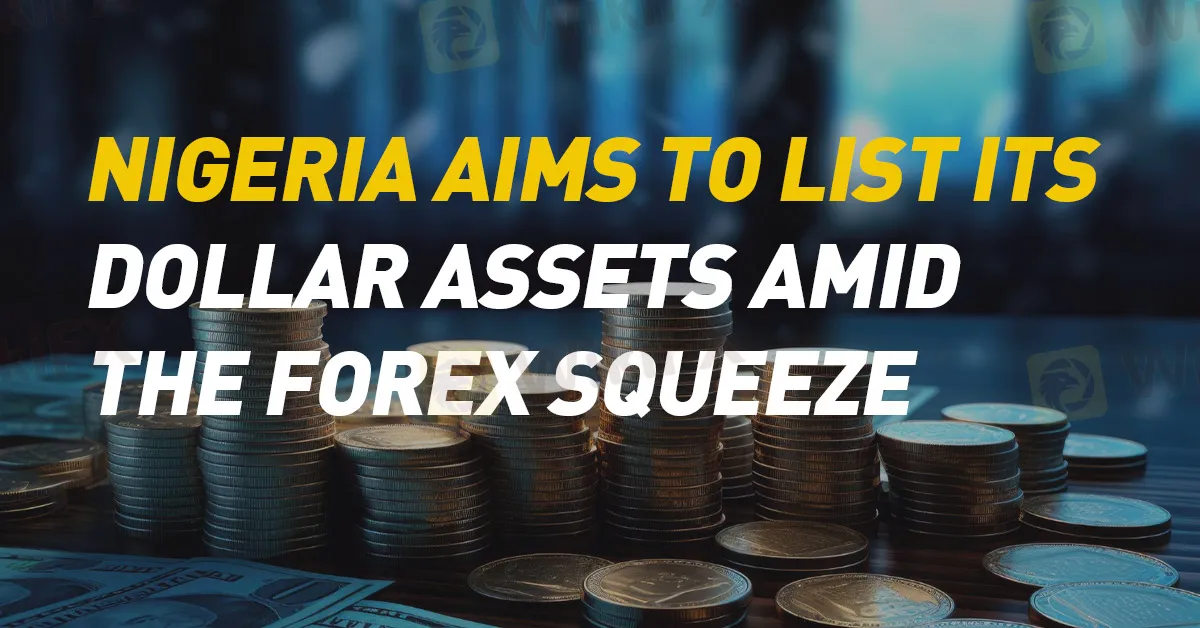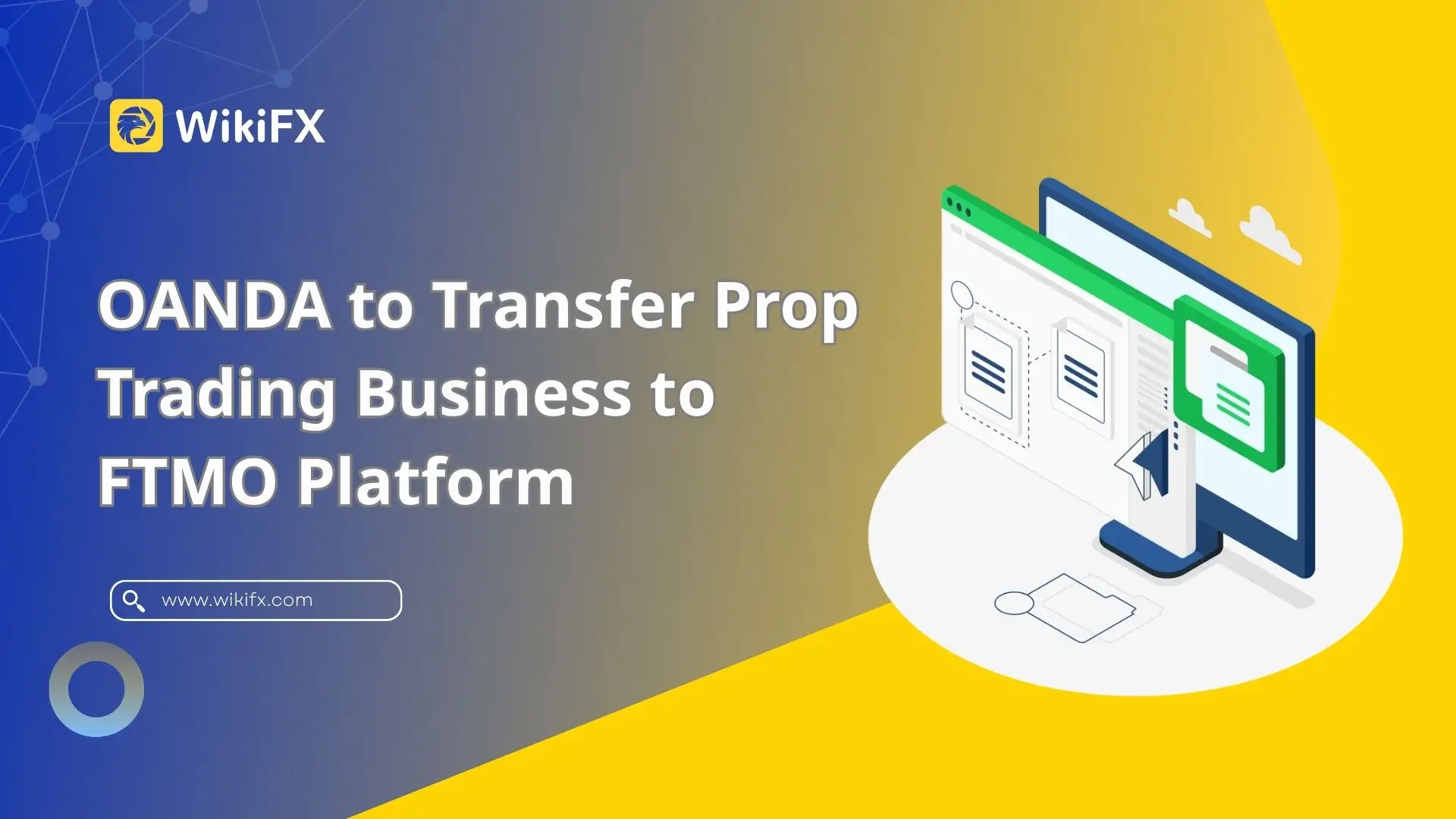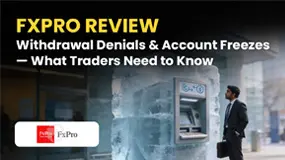OANDA to Transfer Prop Trading Business to FTMO Platform
After FTMO’s acquisition of OANDA, the transfer of the OANDA Prop Trader service to the FTMO platform begins.
简体中文
繁體中文
English
Pусский
日本語
ภาษาไทย
Tiếng Việt
Bahasa Indonesia
Español
हिन्दी
Filippiiniläinen
Français
Deutsch
Português
Türkçe
한국어
العربية
Abstract:Nigerian Exchange Limited (NGX) is aiming for dollar asset listings since they offer Nigerian investors to make money. This was said in a recent interview by Temi Popoola, the company's CEO. Popoola stated that the Exchange contained a number of enterprise models, some of which not only earn revenue in dollars but also declare profits in dollars while praising the government for changes implemented to solve FX issues.

· Nigeria's FX Liquidity Strains: JP Morgan Explanations
Nigerian Exchange Limited (NGX) is aiming for dollar asset listings since they offer Nigerian investors to make money. This was said in a recent interview by Temi Popoola, the company's CEO. Popoola stated that the Exchange contained a number of enterprise models, some of which not only earn revenue in dollars but also declare profits in dollars while praising the government for changes implemented to solve FX issues.
This creates an investment opportunity, if these businesses could pay out dividends in dollars to local investors, he said. According to the CEO, paying out dividends in dollars could potentially help to address the problems caused by the currency fluctuations in the economy. NGX is collaborating with the SEC and other market participants to develop a revised listing regulation for businesses located in free trade zones that have all of their topline revenue and bottom line in US dollars.
Popoola elaborated on the companies in the free trade zone, stating that some of them might not be able to conduct an Initial Public Offering (IPO) in local currency because of their financial structures, which could force them overseas. It may not align with their capital structure.
Therefore, many of them might decide to list elsewhere if they are unable to acquire dollars in our market. It is important to note that both individual and institutional investors in Nigeria have access to a sizable quantity of dollar liquidity. It is essential that this source of funding be made available to our domestic capital market. Popoola added that the Exchange's main goal was to make it possible for these businesses to provide dollar-denominated bonds and eventually dollar stock.
“This can draw listings and help the administration of President Bola Tinubu achieve its goals.” Popoola said NGX was eager to direct the dormant capital lying idle in domiciliary accounts into the capital market, drawing comparisons with Jamaica and Zimbabwe where facilities exist for certain companies to list in dollars while conducting business within the confines of their local currency.
We will be collaborating with the central bank on initiatives like domestic trading of Eurobond on the Exchange, which will play a critical part in accelerating this. Regulations can allow businesses that earn in dollars to pay their dividends in dollars, and given the new government's rapid pace of reform, we are optimistic that they will be quickly implemented.
Nigeria's FX Liquidity Strains: JP Morgan Explanations
According to JP Morgan, an American investment firm, the Central firm of Nigeria (CBN) still exercises some amount of control over the foreign exchange market in Nigeria despite the market's recent liberalization. This control comes through the CBN's intervention mechanisms.
In three monitored areas on Tuesday, the local Naira lost value in relation to the US dollar: Investors and Exporters (I&E) (N770/$1), the parallel market (N890/$1), and Peer-to-Peer (P2P) (N905/$1).
The bank demonstrated that since the CBN introduced rate adjustments in June, liquidity in the I&E window (now known as the Nigeria Foreign Exchange Market, or NFEX) has not improved as much as anticipated in its market research document on the Nigerian economy titled, Reform pause rather than fatigue, released over the weekend.
The US bank stated: “Interbank FX liquidity has not improved as much as anticipated, partly due to the re-introduction of de-facto controls limiting local trades above 800 and loose monetary policy conditions.”
It also claimed that the apex bank continued to make tiny interventions at rates between N740 and N750 without addressing the backlog of unfulfilled FX demand, which had an adverse impact on the parallel market rate and increased it to almost N900.
This is “as a result of a combination of seasonal summer growth in FX demand and renewed local currency confidence erosion.”
It said, “Revealed information that the central bank's net foreign exchange reserves may be lower than initially thought further compounds all of this.”
Instead of the $33.8 billion that the CBN reported as Nigeria's net foreign exchange reserves, the business evaluated that figure to be $3.7 billion.
According to JP Morgan, this development has diminished the ability and inclination to implement a flexible exchange rate system soon.
The research stated: “Authorities' ability to transition to a significantly more flexible exchange rate regime is severely hampered due to a structural balance of payments deficit in Nigeria, and a worse starting point for net FX reserves than previously anticipated.”
It issued a warning that the process of reestablishing reserve buffers is probably going to be put off since considerable reforms are required to draw in foreign direct investment (and portfolio investment) over a longer period of time.
It suggested more immediate solutions, including a rapid increase in oil production and a much tighter monetary policy, which might cause the CBN to halt rate increases from the present 18.50%.
Authorities will need to hold OMO auctions more frequently; they resumed them last week. While we continue to be neutral in the interim, we now think that selling USD/NGN NDFs might be the next strategy given the diminished possibility of additional large near-term FX revisions.

Disclaimer:
The views in this article only represent the author's personal views, and do not constitute investment advice on this platform. This platform does not guarantee the accuracy, completeness and timeliness of the information in the article, and will not be liable for any loss caused by the use of or reliance on the information in the article.

After FTMO’s acquisition of OANDA, the transfer of the OANDA Prop Trader service to the FTMO platform begins.

FxPro, a United Kingdom-based forex broker, has been facing severe allegations concerning fund withdrawal issues, illegitimate account freezes, trade manipulation, and poor customer support. These allegations have been doing the rounds on several broker review platforms such as WikiFX. In this FXPro review article, we have examined these allegations for you to look at. Keep reading to learn how the broker allegedly worsened traders’ experiences.

If you’ve spent more than a few weeks in the forex markets, you already know that leverage is a feature that many traders use, but did you know just how risky it is? Understanding what leverage truly does, and how it connects to pips, margin calls, and risk management, is what separates intermediate traders from beginners.

Although no large-scale public complaints have yet surfaced, we have identified a coordinated cluster of suspicious investment platforms exhibiting strong characteristics of organized fraud operations.
